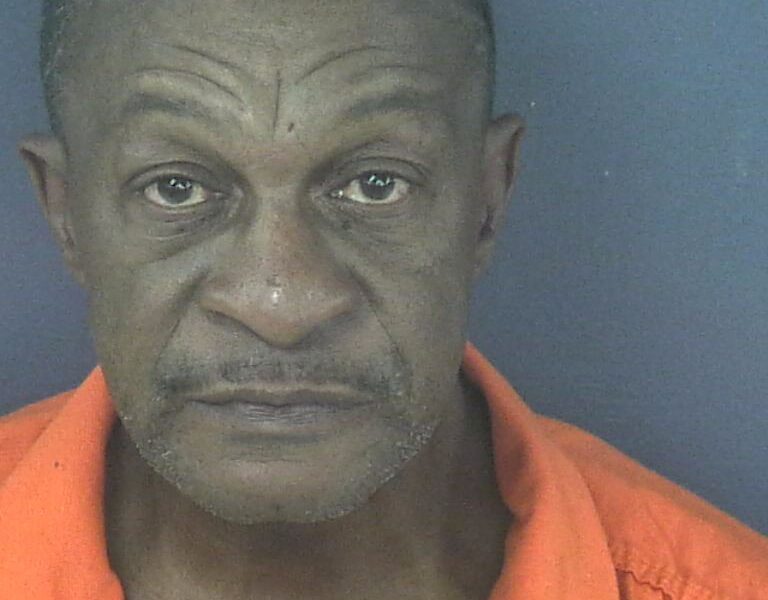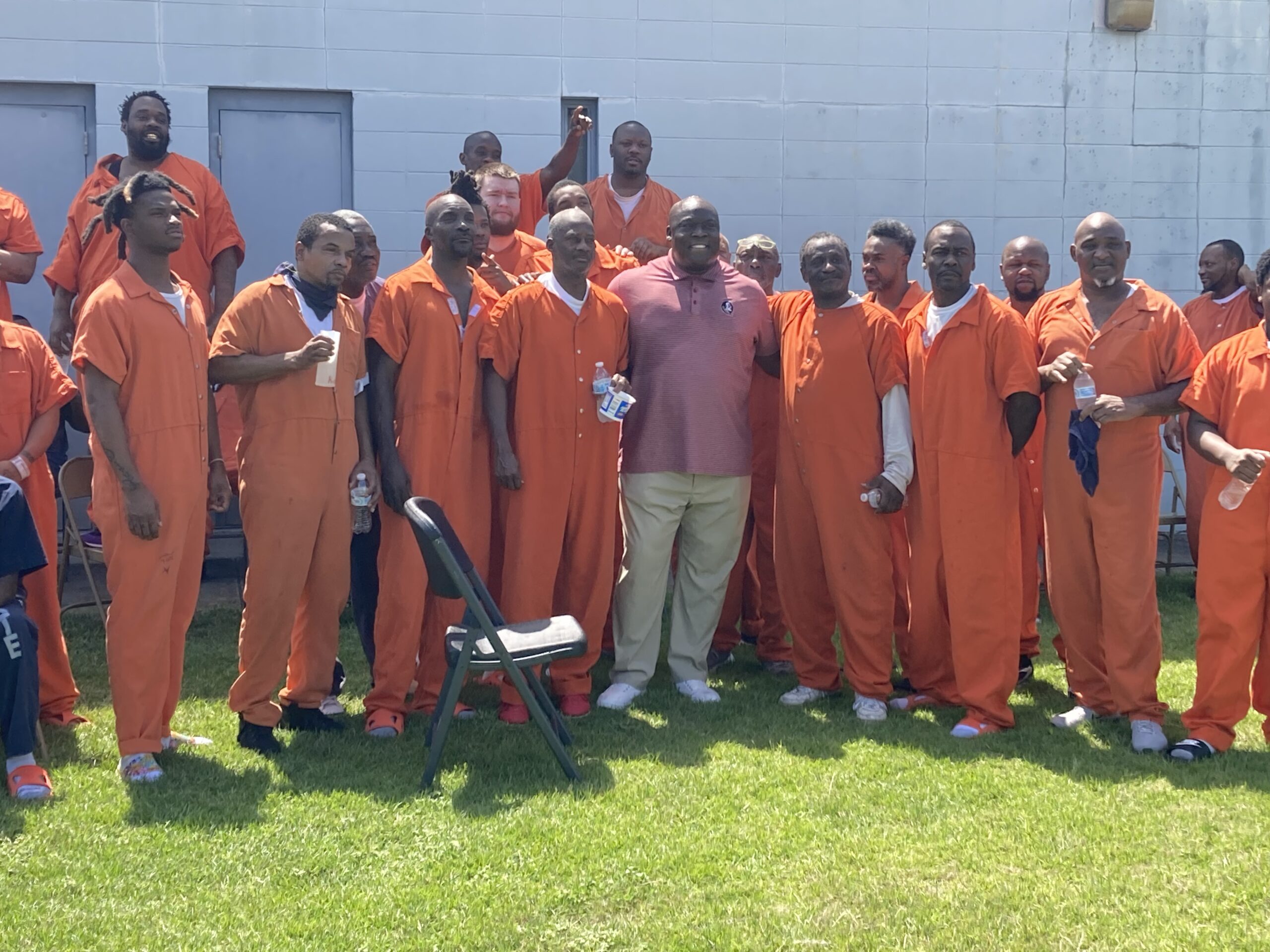The last meeting of the Havana Town Council prompted at-time heated discussion between council members on whether or not an update of the town’s charter was needed – the charter update in particular would be related to the circumstances under which the council could remove a fellow council member from their seat.
In February, Havana Town Council member DeCorkus Allen was arrested on felony fleeing/eluding, and misdemeanor driving while under the influence charges.
Current language in the Town of Havana’s charter allows the council to suspend council members if they are arrested on felony charges, but has no language to allow a removal for a misdemeanor arrest.
While the council voted last month to keep Allen on the board, at least until the March meeting, town leadership felt it worthwhile to discuss the charter language as it relates to council member arrests and council member removals.
“This item is just for discussion, to see if there are any areas where the town wants to update the language,” said Town Manager Kendrah Wilkerson.
According to Wilkerson, some of the areas that she had highlighted for discussion were where the charter said the council ‘shall’ have the power and authority to remove a fellow council member following arrest, versus ‘will’ have the power and authority. Other areas Wilkerson mentioned were regarding adding misdemeanors into the charter’s allowance for removal, and whether or not the council wanted the power for removal to follow an arrest or a filing from the state attorney’s office.
“This is merely to open the conversation to see if there is room or interest or desire to address this language and potentially update,” added Wilkerson.
The first to open the discussion was Councilmember Jenny Stone.
“I think we, the council, should not be the judge and jury,” said Stone. Stone felt that a suspension should be automatic, rather than up for council members to decide case-by-case.
“I would like an attorney to look at taking out the ‘we have the power’ and maybe, it’s that you are suspended upon arrest,” said Stone. “I think suspension, instead of removal, is giving [a council member] the benefit of the doubt until the judge and jury decide on that crime.”
Stone added that she felt that council members should be ‘taken out of the discussion’ regarding council member suspensions following arrests.
“It shouldn’t be our opinion whether or not something is suspendable or not,” added Stone. “Once you are arrested or formally charged, you should be suspended until the judge and jury decides if you are guilty of that crime or not.”
Stone was also in favor of adding misdemeanors to the list of suspendable causes. “There are some misdemeanors – like petty theft – that just aren’t great for an elected official to be charged with.”
The State of Florida’s statute regarding suspension allows for suspension of an elected official following a felony or misdemeanor arrest, as well as malfeasance, misfeasance, neglect of duty, habitual drunkenness, incompetence, or permanent inability to perform his or her official duties – making the Town of Havana’s charter language on the matter more lenient than the state’s statutes.
Councilmember Nick Bert, however, supported a more lenient proposal. “The only thing I would change, if I changed something, would be that we would not suspend anyone until they are indicted or formally charged for a felony,” said Bert. Stone asked if Bert was comfortable being the authority on whether or not a council member’s criminal charge was ‘bad enough’ to warrant removal from the council – as she was not.
Bert brought up that prior to last month, the board had no reason to bring this up – saying that this was something that Havana’s council would rarely have to deal with. “Maybe if there is a problem down the road, we can see about changing it. But until then, I’d say leave it alone,” said Bert.
“So, at the next problem, change it. But at the first problem, leave it alone?” asked Stone. “Why not go ahead and change it? That’s my opinion. If no one else feels like we should seek legal advice, then we don’t have to move forward.”
“I think we should get to make the decision whether we are going to suspend a fellow council member or not,” said Bert.
Councilmember Dwight Vickers entered the discussion, saying that he felt a suspension should come after the state attorney’s office formally filed charges, rather than following a police arrest.
This prompted Havana Town Chief Tracy Smith to step up and ask to clarify a misconception he was seeing amongst the council.
At this meeting, and at the emergency meeting in February where the town discussed Allen’s arrest, the town council continued to say they were waiting on ‘formal’ charges from the state attorney’s office.
“I feel like I need to clarify something – the state attorney’s office does not charge anybody,” said Chief Smith. “The officer charges people. The state attorney looks at the charges and says ‘this is a misdemeanor, but it should be a felony,’ or ‘I don’t think I could win this case in court, so I’m going to dismiss it.’ But the charges are official when the officer arrests someone. The state attorney’s office does not do that.” Stone said this clarification changed her opinion – instead of a suspension following a state attorney filing, she felt as though a suspension should come immediately following an arrest.
“Since I am not an attorney or a police officer, I think we should seek legal advice [on this],” added Stone. “But I stand by that we should not decide who gets suspended and who does not.”
Additionally, Stone said she felt as though this might set the council up for favoritism games, or for dismissing arrests because they didn’t feel it was ‘bad enough’. Mayor Hart then joined the conversation, with a series of questions. Hart asked if the town had the original date of the charter (no one knew the date exactly) and if they had a list of other revisions that had been made since the charter’s enactment (Wlkerson said there have been a number of amendments to the charter since its original writing).
“So we can have an open and transparent [discussion], I would like us to bring back to the table a discussion on forming a committee to review the charter – the whole charter, or pieces of it,” said Hart.
According to Hart, if the town was going to amend the charter on this matter, she felt they should look at the charter as a whole.
Stone felt that was unnecessary, saying the purpose of an amendment was to make edits to the charter as issues came up, not all at once.
“That’s just my suggestion,” said Hart.
This would require the council to form a special citizen commission to review the entire charter, and then any amendments (including the language that allows council member removal) to go on a ballot for residents to vote on.
Stone, again, felt that action to be unnecessary.
Hart insisted she wanted this course of action as a step of transparency. “I hear what you are saying, but I think organizing a commission, choosing a commission, and then looking at the entire charter is unnecessary work,” said Stone. “It’s not,” said Hart.
Vickers asked if Hart’s suggestion would include an attorney’s presence during the review of the charter, as he had concerns with the expenses this might accrue for the town if so.
Hart said an attorney could ‘be engaged’ at some point.
Bert asked if the town had the charter’s text online, allowing citizens to browse and review it at their convenience, and then bring ideas for amendments before the council. Wilkerson said the charter was not online, but was accessible for citizens to review in physical form at town hall; this was partially due to the size of the charter document, as well as the time it would take to get it placed online.
At this point, Hart attempted to move the council to the next discussion item, but Wilkerson asked if there was a consensus among the council as to which direction they would like the town staff to proceed regarding the matter.
No formal vote was required, but Stone made a motion to seek legal advice on taking the suspension authority from the council, and making the suspension automatic. Hart then asked if a workshop could be arranged, instead.
Wilkerson said yes.
Hart then attempted, again, to move onto the next discussion item, only to be interrupted by the council reminding her that Stone still had a motion on the floor. Stone’s motion failed to get votes to be officially passed.
Before ending the discussion, Wilkerson reminded the council that a motion was not needed.
“What I will do is take all of this feedback to the town attorney,” said Wilkerson, adding that she would get the attorney’s input on the various aspects of concern or suggestions that the council had addressed and get the attorney’s legal advice on the matters before bringing this topic back before the town council.
Ashley Hunter – Gadsden County News Service




